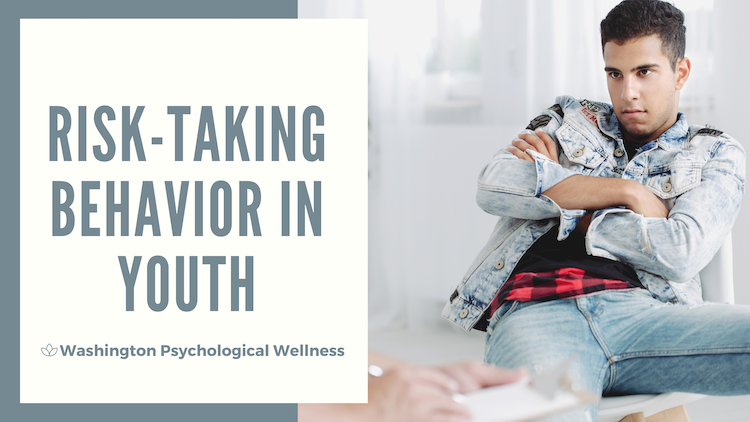How Therapy Helps Address Risk-Taking Behavior
Risk-Taking Behavior In Youth
Risk-taking behavior in the youth is an important topic that often gets overlooked. Risk-taking can include anything from getting into a fight and skipping class to more severe behaviors such as running away and experimenting with drugs. If left unchecked, these attitudes can persist well into adulthood, potentially leading to self-harm or more serious psychological disorders such as addiction.
Though risk-taking is an integral part of growing up, the child may not realize these actions could have lasting consequences. Fortunately, there are therapies that can help parents, guardians, and other supporters understand why the child chooses to act in such a way. Therapy can also help determine what may be triggering these behaviors and provide ways to encourage positive choices.

How Therapy Can Help Address Risk-Taking Behavior In Youth
One common reason for youth risk-taking behavior is underlying psychological stress created by conflict with parents or society. For example, a child may be using drugs to cope with a difficult home environment. A therapist can help the parent understand why the child is likely to behave in this way and encourage them to create a more supportive living situation.
In some cases, a child may be acting out due to bullying or tension at school. A therapist can help children and teens identify what is causing such issues and provide coping skills for dealing with such situations.
As with any mental condition, a therapist is the best resource for determining the root cause of a child’s risk-taking behavior. For example, if a child engages in self-harm behavior, a therapist will help the child understand why they are at risk and provide coping skills to avoid future problems.
Here are a few other things to consider:
- Children that exhibit risk-taking behavior often have trouble making good decisions. It can be challenging to analyze situations from multiple perspectives, which can lead to poor choices. Therapy may help the young person come to terms with the long-term consequences of their actions.
- Risk-taking youth may be trying to hide a more profound emotional pain, such as grief or loneliness. Counseling may help them identify these feelings and help them make healthy choices.
- Risk-taking you may be trying to gain attention or a sense of importance. Therapy can help risk-taking youth identify their true wants and needs and learn how to achieve them healthily.
- In therapy, the child will have the opportunity to discuss what they are thinking and feeling without being judged. Risk-taking youth may have been through situations where they have been criticized for their behavior, even by those that love them most. This only discourages the healthy expression of emotions and leads to risky behaviors as a way to prove themselves.
- Getting professional help may help risk-taking youth see they are not alone and that others have been in similar situations. This can give them a stronger sense of identity and the desire to make better choices.
- Therapy can also allow risk-taking youth to take an honest look at how their values align with their actions. People tend to change their attitudes when they have a new perspective.
- Parents who have a close relationship with their children have a better chance of seeing something amiss. This can help the child feel less alone and realize their family is there for them.
Getting Help For Risk-Taking Behavior In Youth
If you suspect that your child may be acting out due to underlying psychological stress, seek out therapy as soon as possible. The longer you wait, the more likely it is that negative behaviors will become ingrained in their personality.
If you would like more information on how therapy can be helpful, don’t hesitate to get in touch with Washington Psychological Wellness to schedule a complimentary initial 15-minute consultation today.
